Check out our annual fair to find the right LL.M. for you.
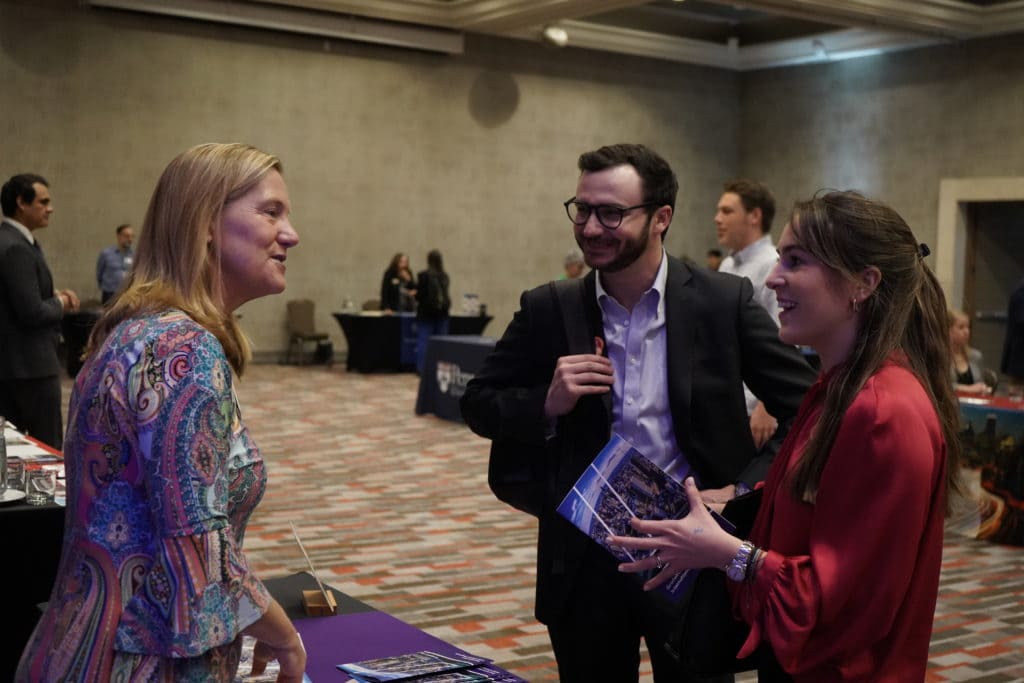
There are more than 200 law schools in the United States, where you can find world-renowned institutions. If you are thinking about pursuing a law degree in the United States, you should ask yourself some questions before you begin the application process. Where do you see yourself working in 5-10 years, in what type of area, where would you like to work, in your home country or in the United States, what type of lawyer would you like to be, what type of lawyer would you like to be, and what type of lawyer would you like to be?
When you have the answers to these questions, you will have a clear understanding of what type of program fits your professional needs.
Law programs in the United States, unlike in Chile, are divided into three types. Below, we will briefly explain each of them:
Juris Doctor (J.D.): Those who want to study law in the United States must have an undergraduate degree in the United States as a minimum requirement to apply to law school. If you have studied a bachelor’s degree outside the United States, you should ask if it is valid to apply to the law school of your interest.
After completing all coursework, graduates must pass the Bar Exam in the state in which they wish to work in order to practice law in the state in which they wish to work.
Master of Laws (LL.M): A master’s degree that aims to deepen knowledge and skills in a specific area of law. It is completed after having completed a J.D. or a law degree in another part of the world.
Doctor of Jurisprudence (S.J.D.): This is a three- to five-year doctorate in law, aimed at those lawyers seeking to develop in research and academic writing in their area.
The term LL. M is an abbreviation of the Latin Legum Magister (Master of Laws). An LL.M., or Master of Laws, is a postgraduate program in the field of law, designed for lawyers to broaden their knowledge and study a specialized area of the profession. The LL.M. is an internationally recognized degree.
The program lasts between nine months to one year, and is available as a residential program at most universities. Along with broadening your knowledge and enhancing your resume, LL.M. students in the United States have the opportunity to sit for the American Bar Association exam.
Another differentiating aspect of this program in the U.S. is that it is not only for professionals in the legal area, but for all those interested in technical specialization in areas such as Environmental Law, Corporate Law, Human Rights, Public Law, International Law, among others.
Finally, graduates of the LL.M. programs have the opportunity to obtain professional experience in the United States by completing an Optional Professional Practice (OPT) after graduation.
All those who already have a law degree and are looking to acquire knowledge in a specialized field, for example in tax or international law. An LL.M allows you to specialize in a particular area of law to change your career path, to gain more credibility or to gain knowledge before entering a career in any type of law.
The requirements vary depending on the law school you are applying to, so you will need to check them out directly. However, some of the most common requirements are a law degree, language proficiency (with tests such as the TOEFL -Test of English as a Foreign Language- or IELTS -International English Language Testing System-), a transcript from your law school, letters of recommendation, and work and research experience.
The process is lengthy and contains a number of time-consuming steps. Some of them will be: researching a school of your interest, requesting letters of recommendation, taking an English test, requesting official papers required (such as certificates) by the schools you are applying to, registering on time for applications, among others.
Studying for an LL.M. is an important decision, so make sure you choose the right program for you. What you want to get out of the LL.M. program is the starting point: the application process should be driven by your goals. If your goal is, for example, to specialize in Intellectual Property, you should look for Law Schools that excel in that area. Check out the following tips that can help you choose a graduate law program:
Conduct research at least one year in advance, as some universities will have early closing dates for their applications. For this reason, we recommend that you periodically visit LLM school websites.
If you do not know how to start looking for LL.M. programs, we leave you the following page where you can learn about the different programs in the United States:
Read in detail about each LL.M program and consider how they fit with your current professional profile and the one you wish to develop: are you looking for a broad understanding in a new or unfamiliar area of law? Do you already have experience in that area and seek deeper, more theoretical knowledge? Does the program offer you professional accreditation that could enhance your career prospects?
Also consider which academics teach in the LL.M. program of interest to you: have they published or conducted research in the area? Are they well-known in their respective fields? What contacts do they have with law firms, the judiciary, industry, NGOs, etc.?
The research and application to an LL.M. program must be done with a lot of dedication, in order to find an institution that offers everything you are looking for in an LL.M. program.
Luego de algunos años de imprevistos, retomamos las actividades presenciales con nuestra feria de posgrados en derecho EDUCATIONUSA LL.M. FAIR 2022 SANTIAGO.
Este evento gratuito contó con la presencia de veintinueve (29) escuelas de derecho de universidades de Estados Unidos, y se realizó el miércoles 02 de noviembre a las 17:00 horas, en el Hotel Intercontinental (Av. Vitacura 2885, Las Condes).
A la actividad asistieron más de 130 interesados/as en estudios de especialización en Derecho.
EducationUSA LL.M. Webinar Series se realizó del 3 al 10 de noviembre del 2021.
Cada día consistió en un panel de universidades que presentaron un tema específico durante aproximadamente 45/50 minutos. Luego, realizamos un breve momento para preguntas y respuestas de parte de los representantes de las facultades de derecho presentes en el panel. Finalmente, los personas interesadas pudieron dirigirse a salas privadas de Zoom de cada universidad y hablar con el representante en un grupo más pequeño e íntimo.
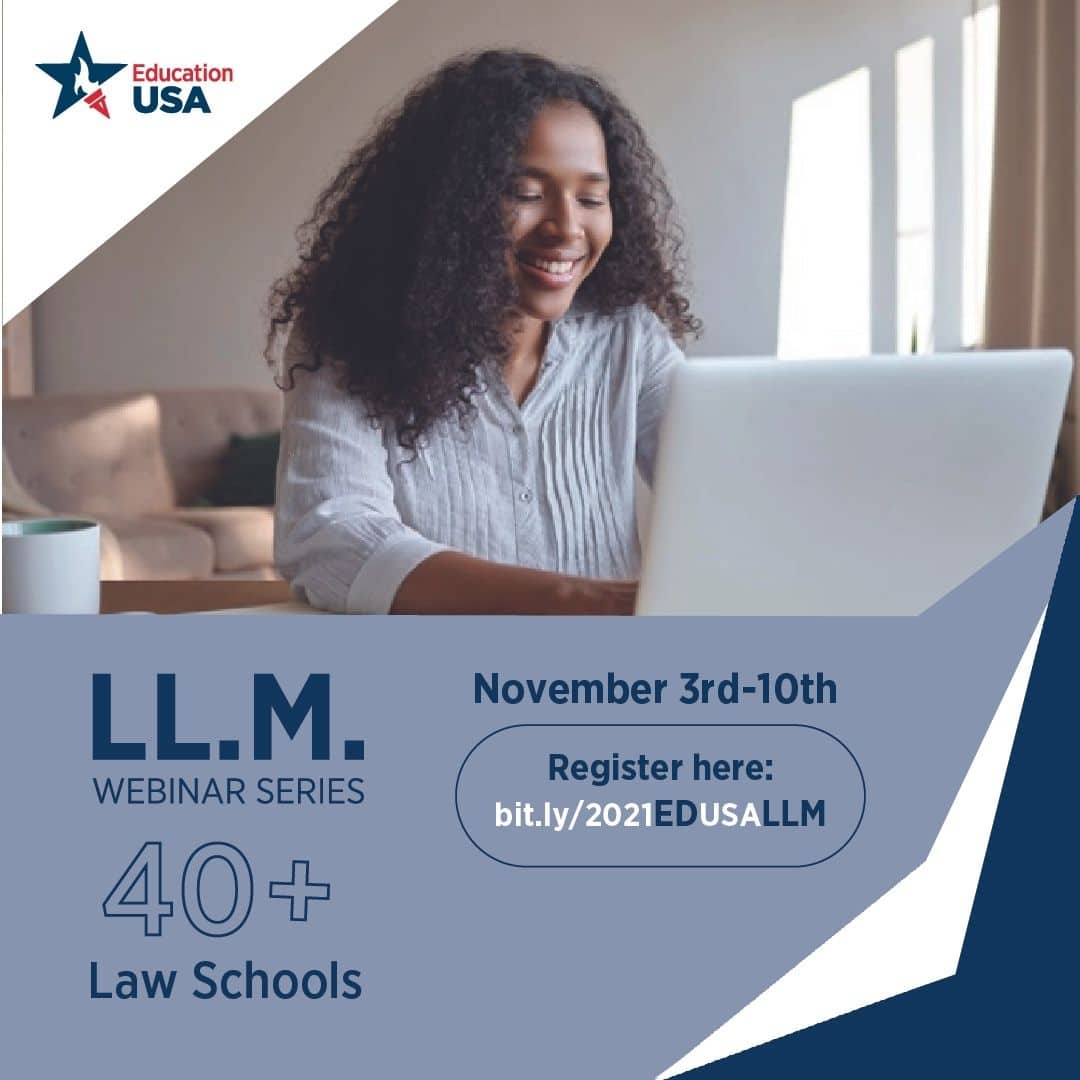
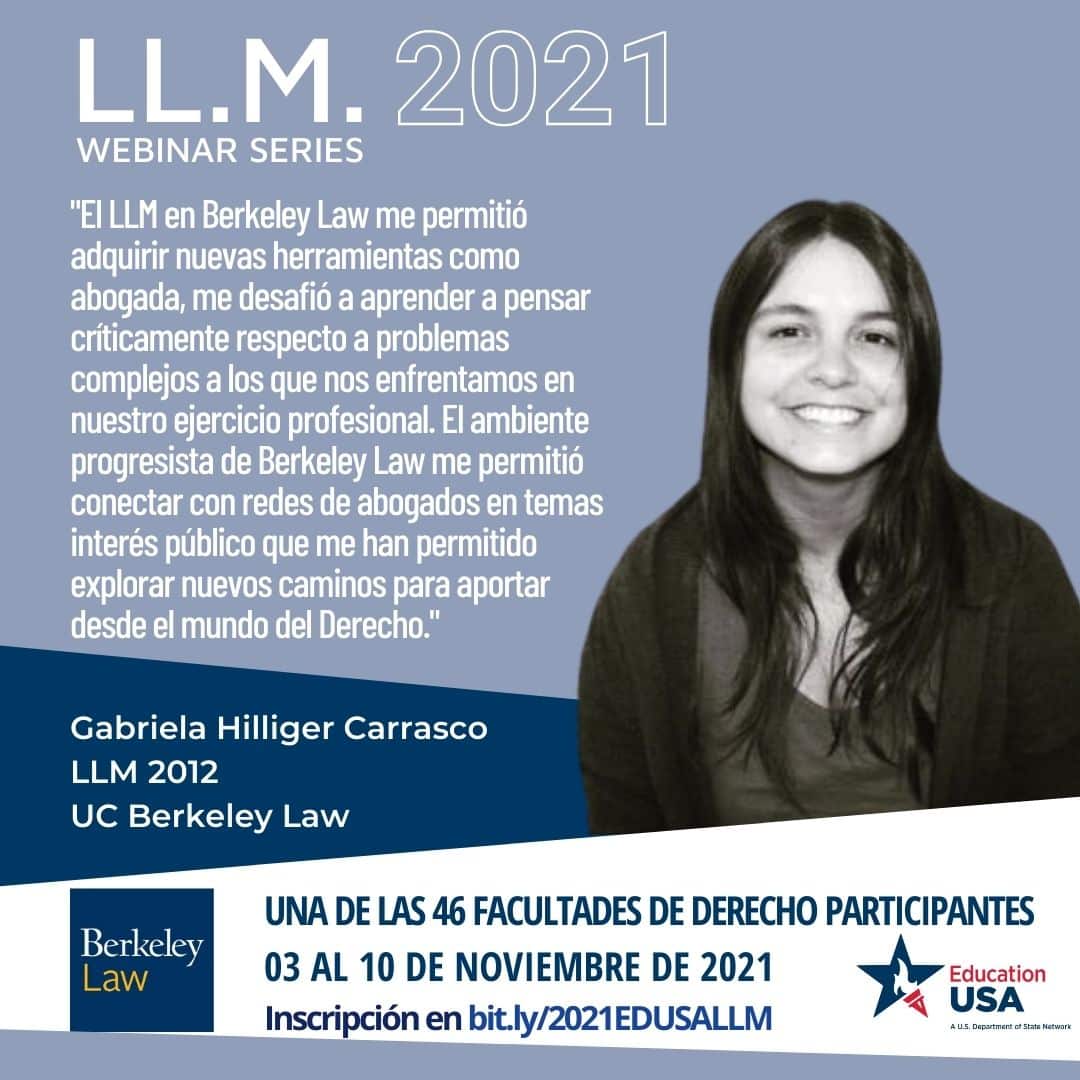
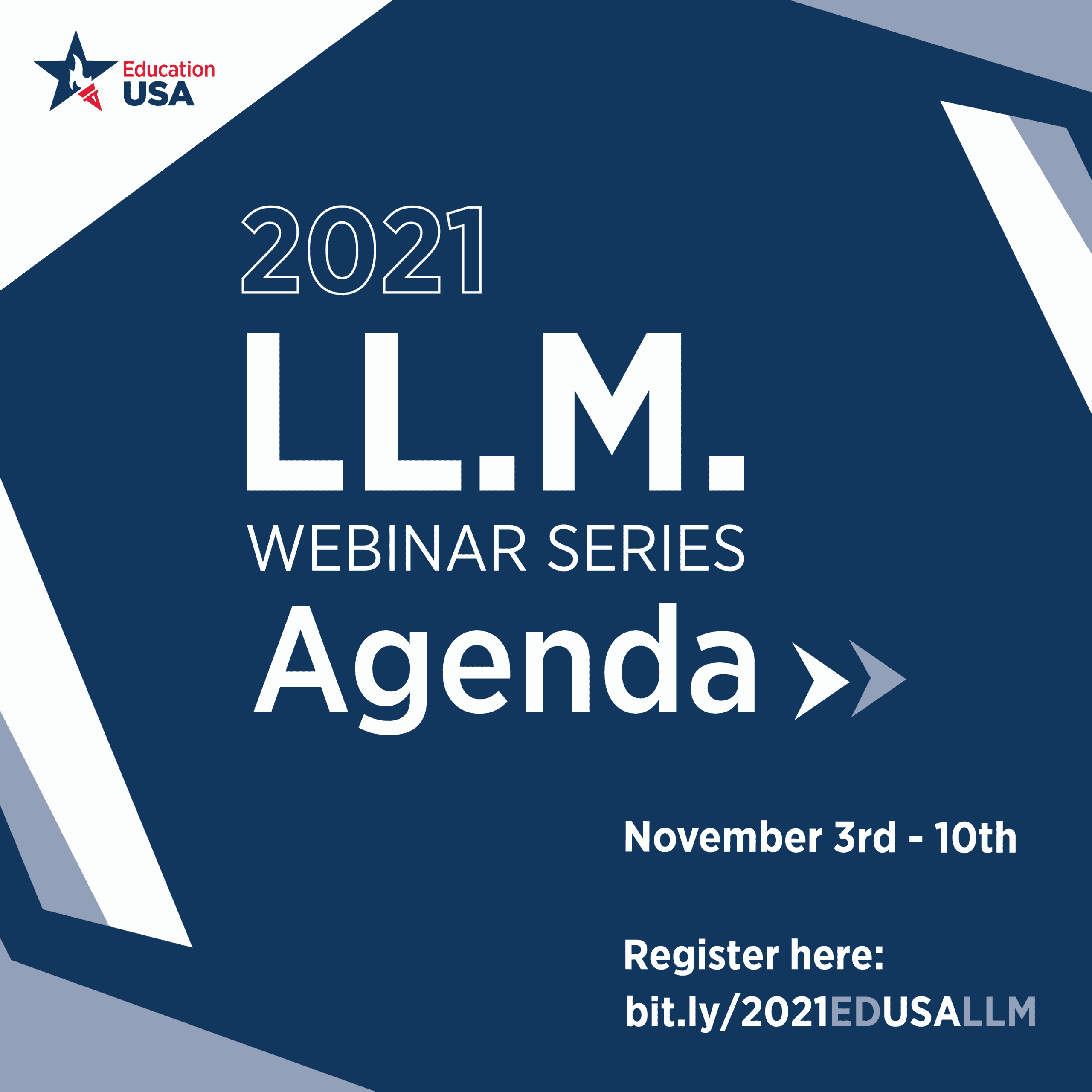
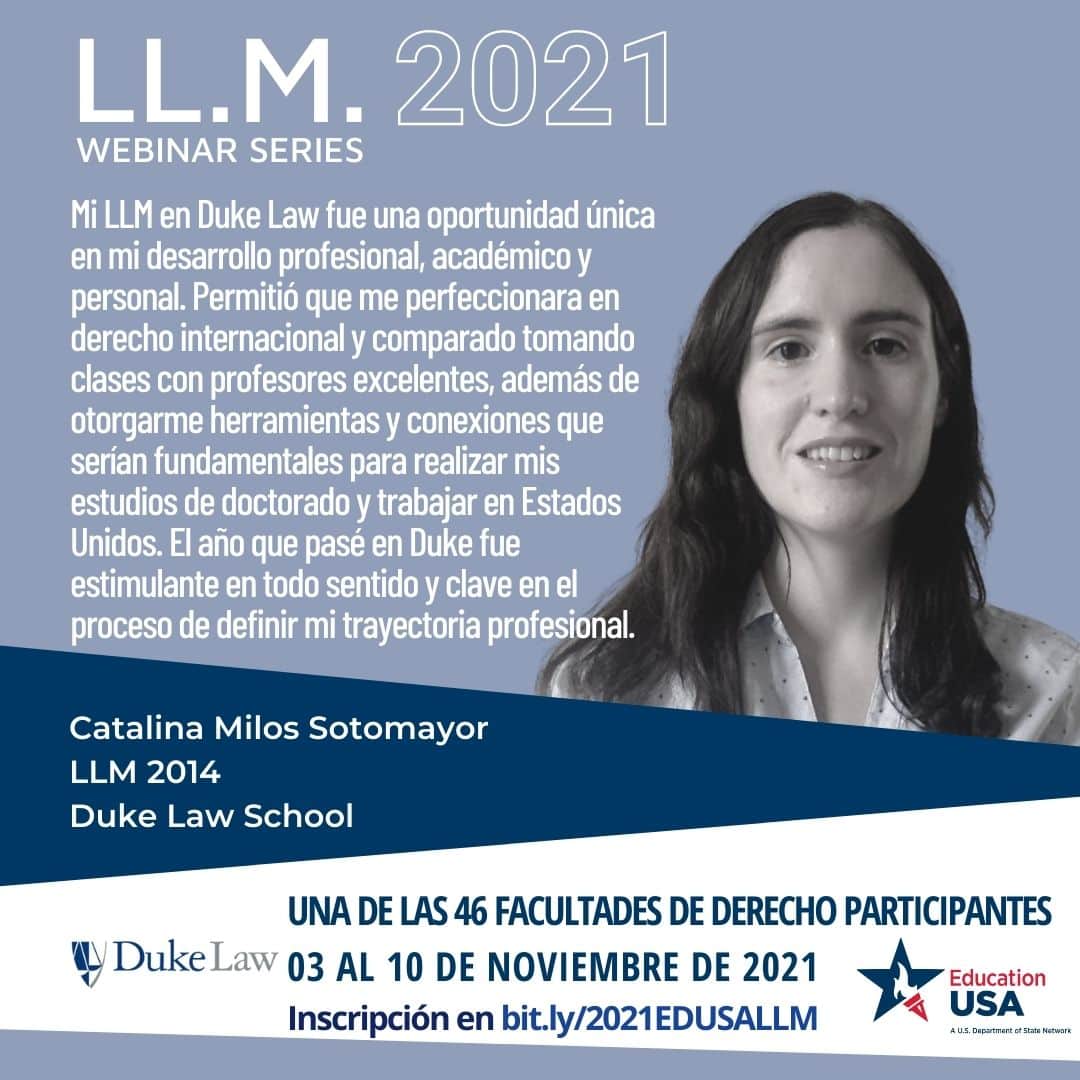
La primera versión de EducationUSA LL.M. Webinar Series se realizó entre el 19 y el 30 de octubre. En este evento virtual, estuvieron presentes profesionales del campo del derecho con representantes de 53 prestigiosas facultades de derecho de universidades de Estados Unidos, entre las cuales se encuentran la New York University School of Law, Notre Dame University, UCLA School of Law, entre otras. Todas las charlas que se dictaron fueron totalmente gratuitas y virtuales.
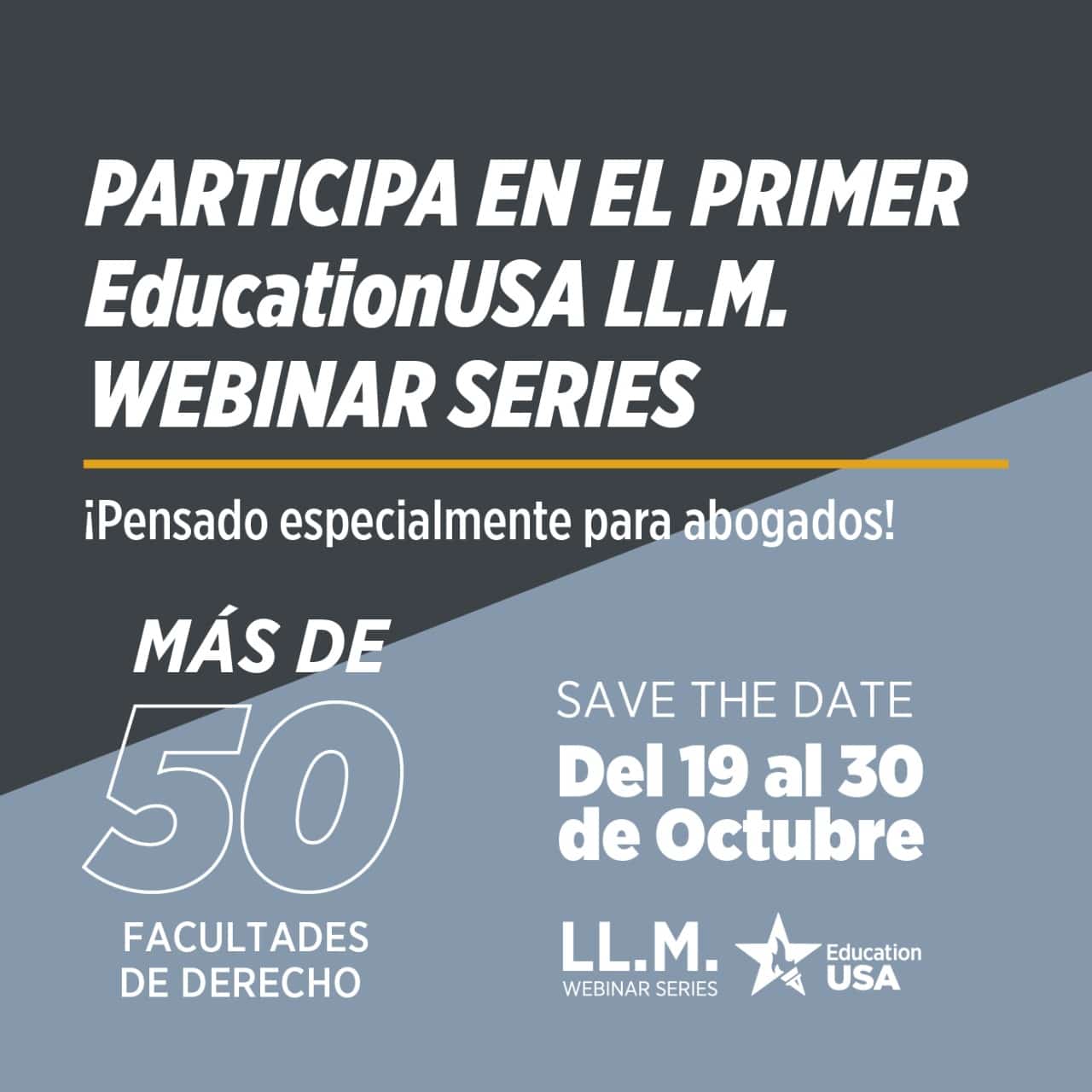
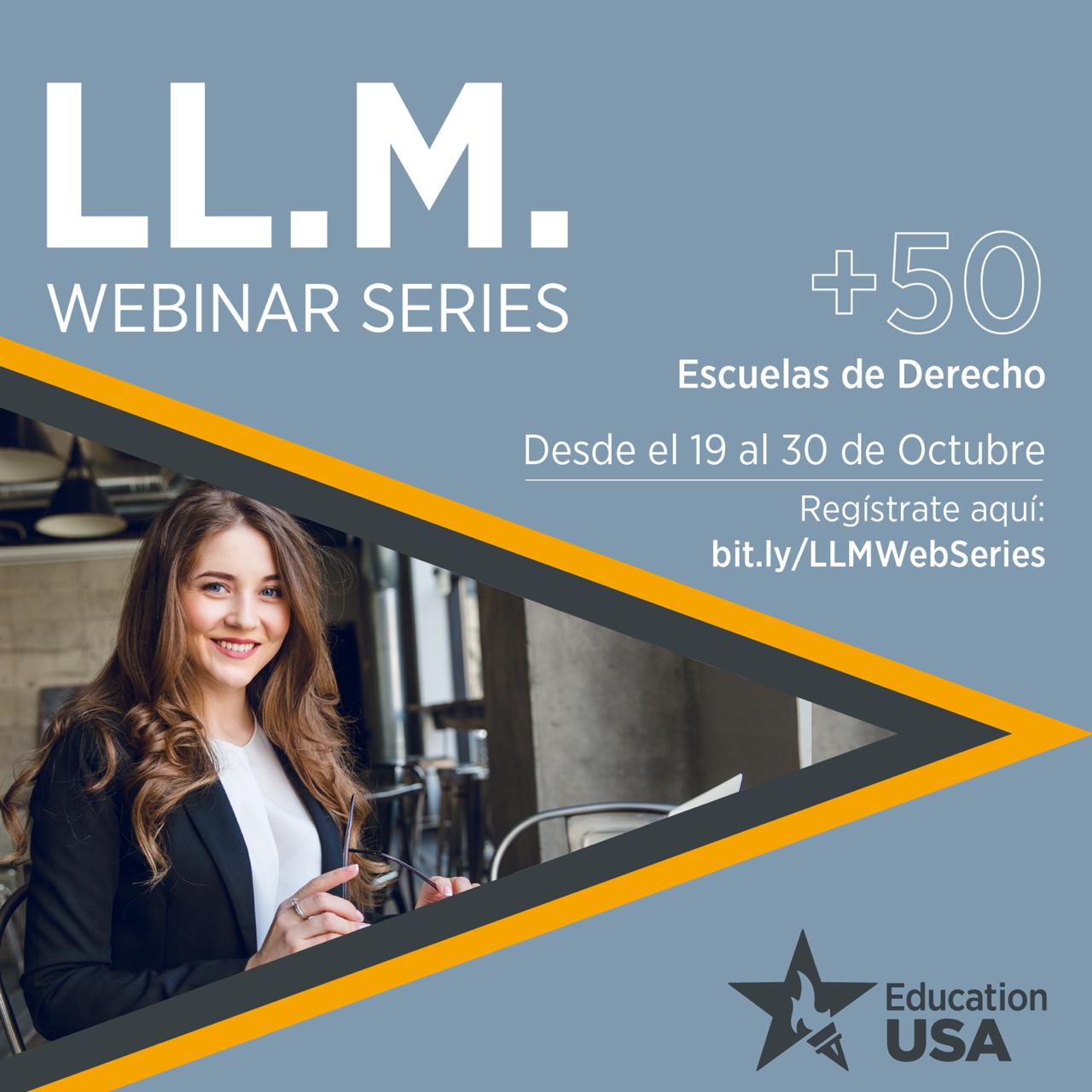
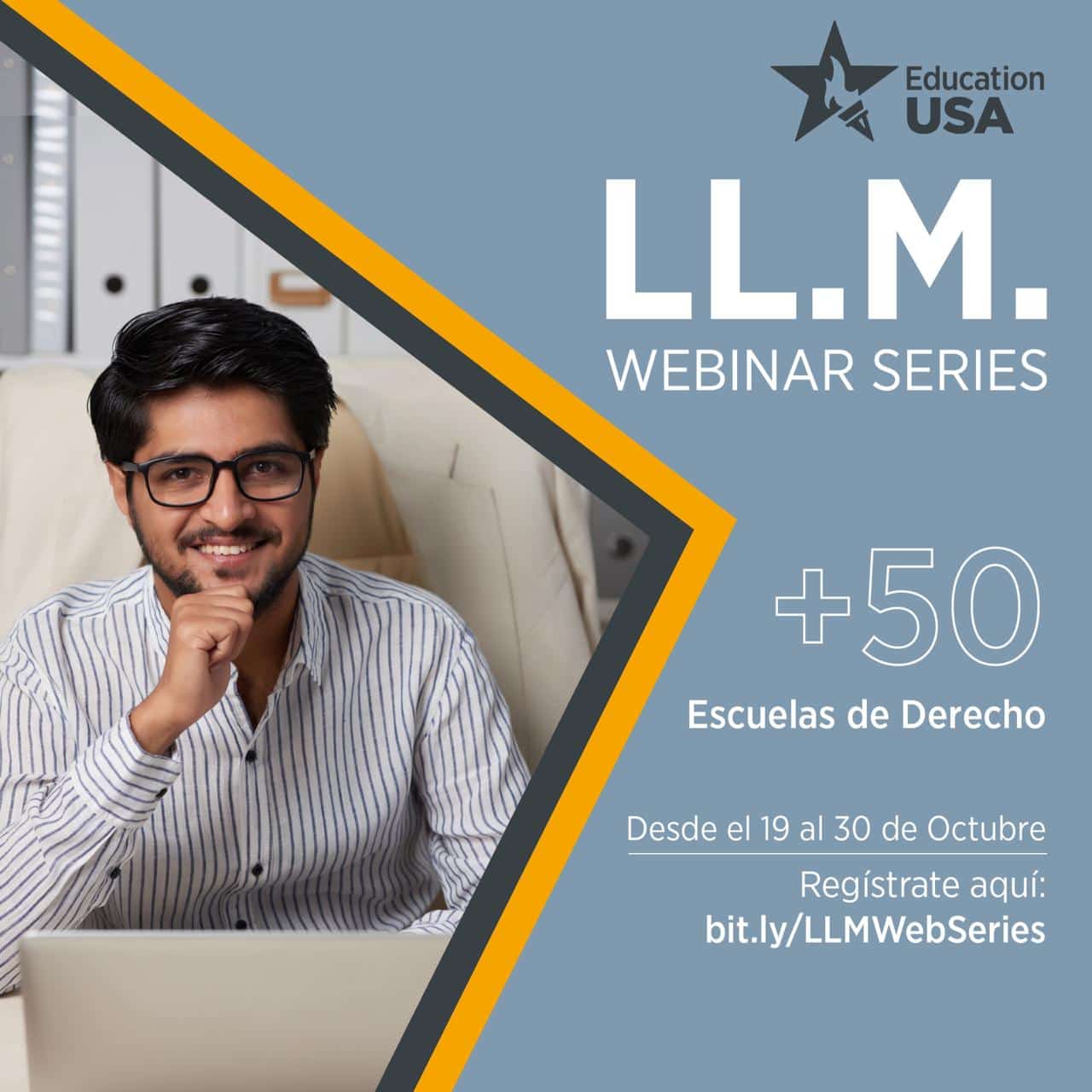
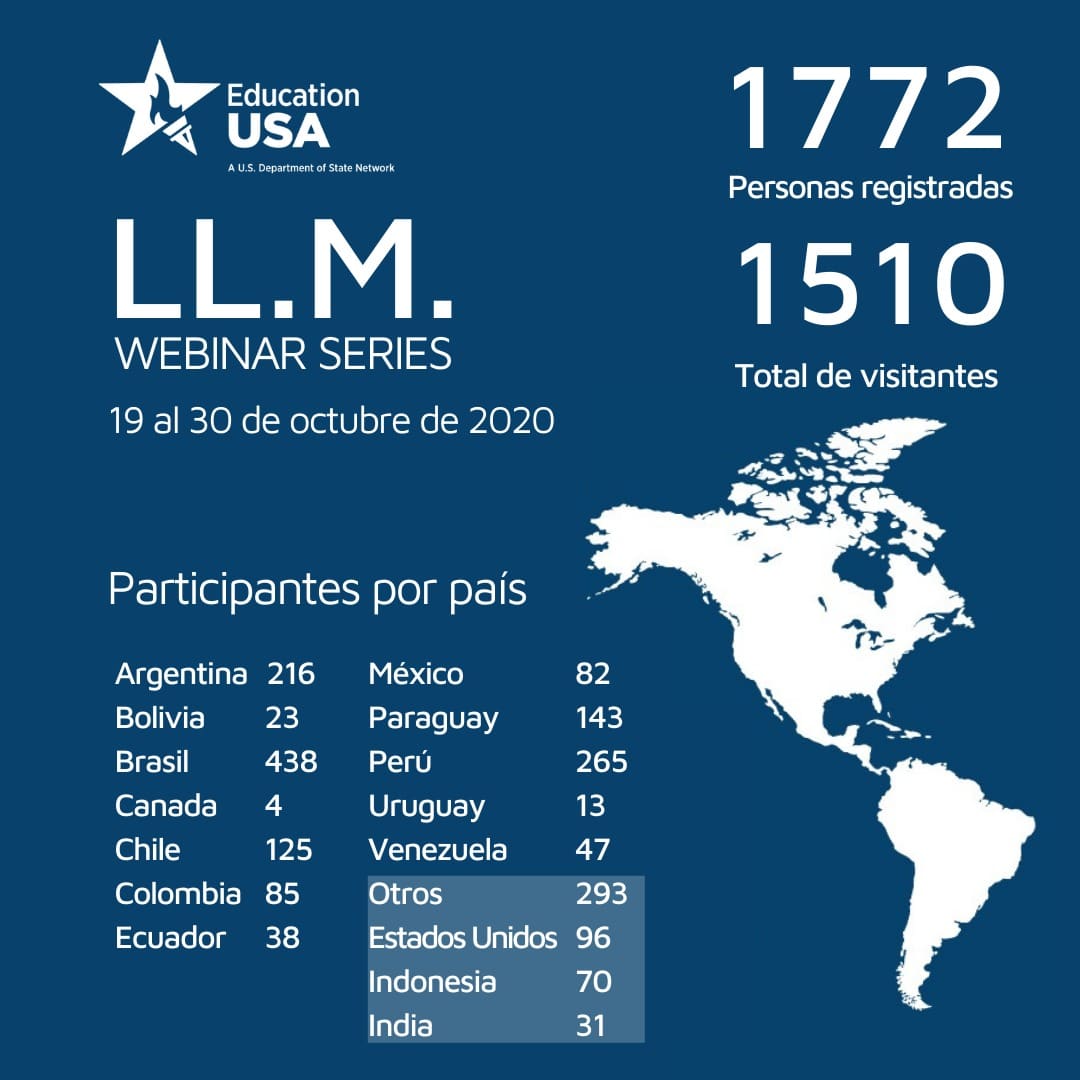
La primera Feria LL.M de EducationUSA Chile se realizó el jueves 25 de octubre de 2018 en el Hotel Ritz Carlton, ubicado en Las Condes. Un total de 37 universidades de Estados Unidos, como ETS y Fulbright Commission, participaron en esta gran convocatoria. De los 369 registrados para asistir al evento; 176 fueron parte activa de nuestra feria. De ellos, 141 eran abogados y el resto estudiantes de la misma carrera.
De los asistentes a la feria, un gran porcentaje eran graduados de las mejores universidades del país como lo son la Pontificia Universidad Católica de Chile,y la Universidad de Chile.
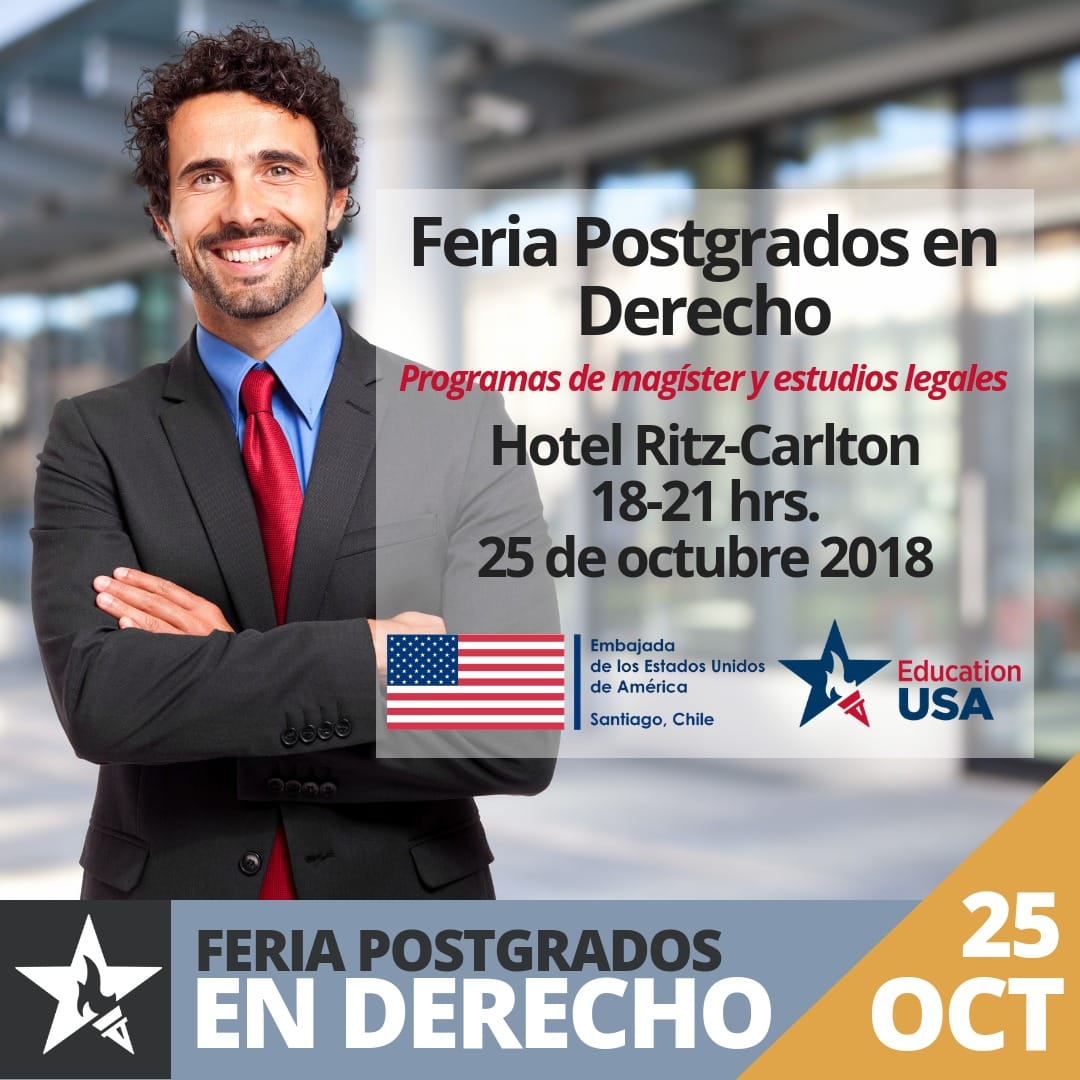
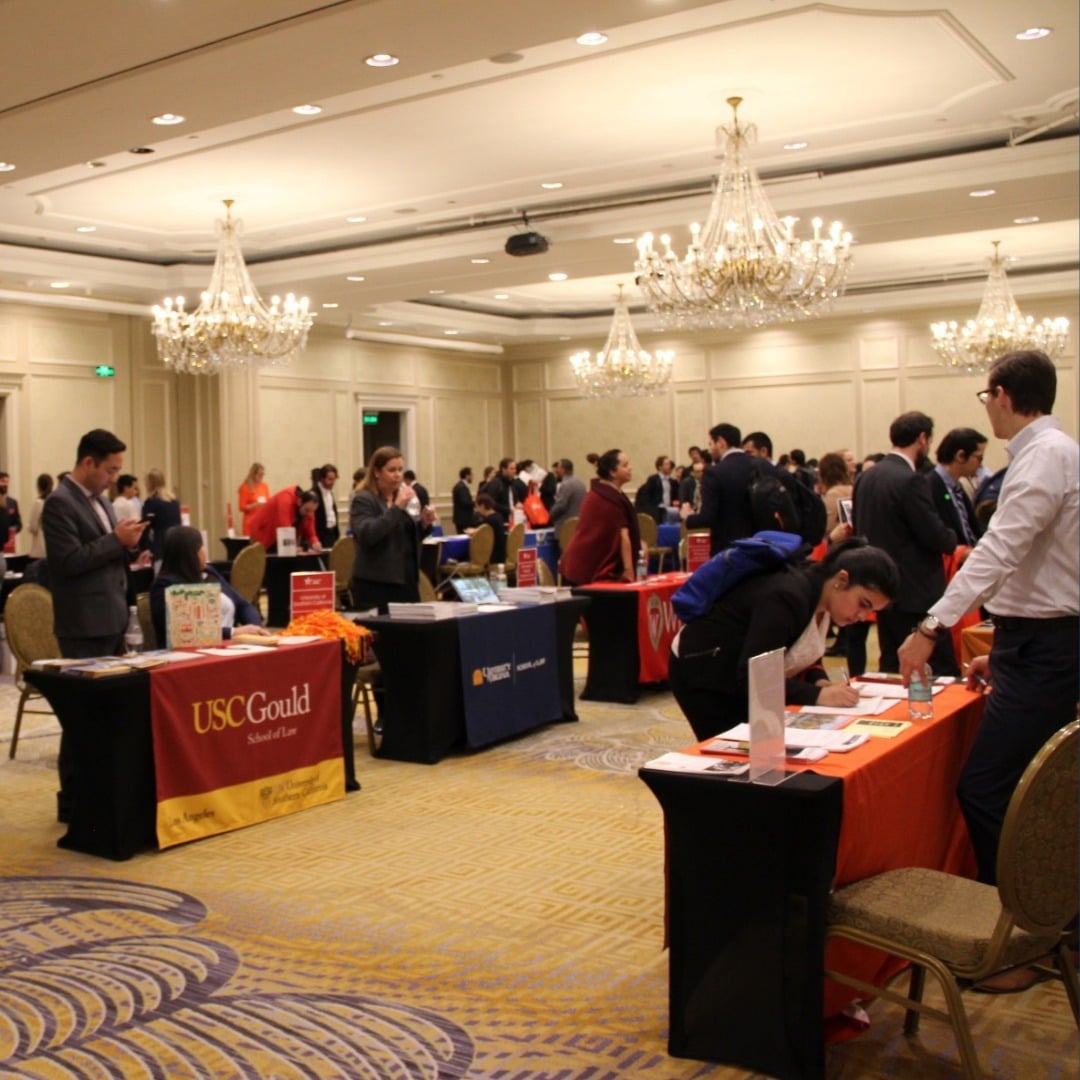
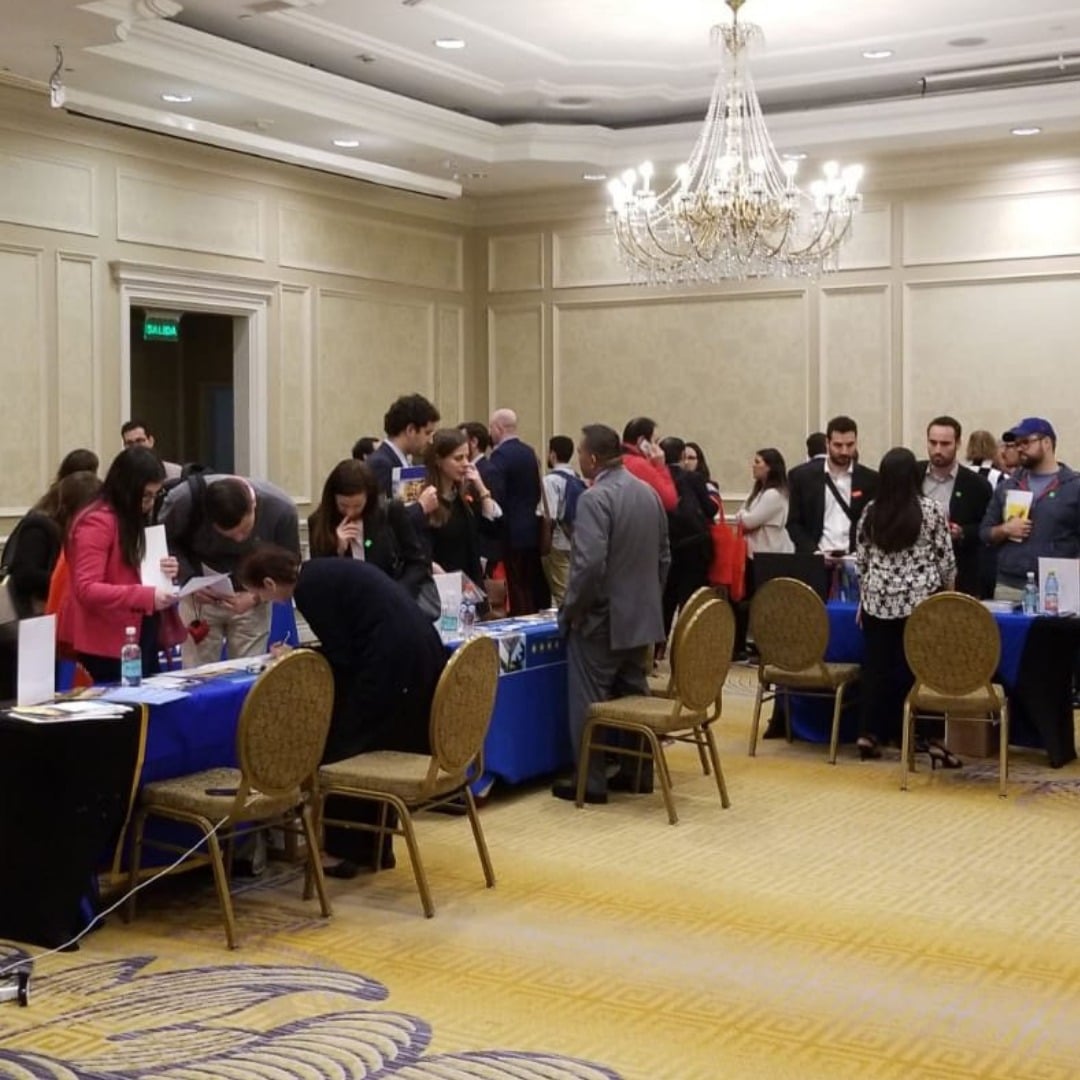
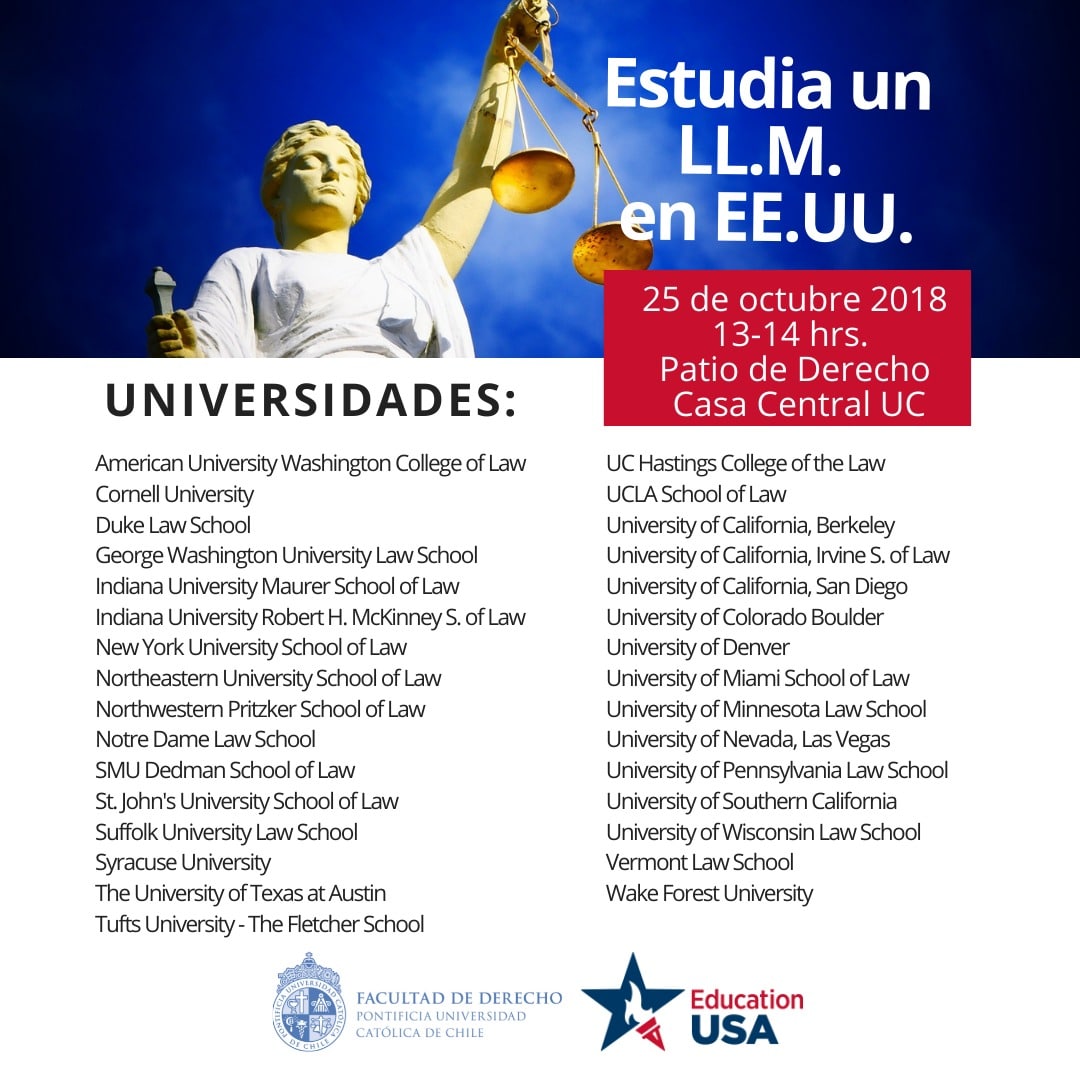
EducationUSA Advising Centers are in partner institutions, including binational cultural centers and local universities.
These centers share a common goal: assisting students and professionals in accessing U.S. higher education opportunities. EducationUSA advisers staff the centers, many of whom have first-hand experience studying in the United States

Our Offices
For your Interest
Follow Us

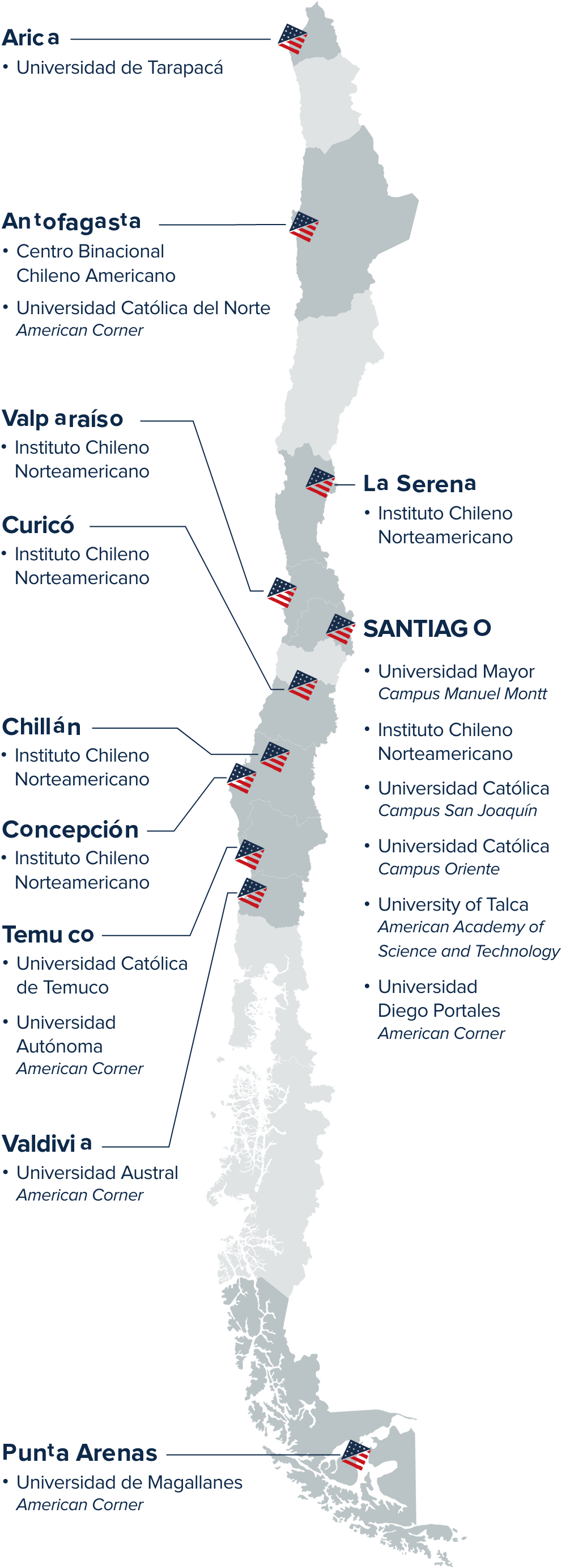
To provide the best experiences, we use technologies like cookies to store and/or access device information. Consenting to these technologies will allow us to process data such as browsing behavior or unique IDs on this site. Not consenting or withdrawing consent, may adversely affect certain features and functions.
1. American University Washington College of Law
2. Berkeley Law
3. Boston University School of Law
4. Columbia Law School
5. Duke University School of Law
6. Emory University School of Law
7. Florida State University
8. George Washington University Law School
9. Georgetown University Law
10. Georgia State University College of Law
11. Indiana University Maurer School of Law
12. Indiana University Robert H McKinney School of Law
13. LMU Loyola Law School, Los Angeles
14. Loyola Chicago
15. University of the Pacific, McGeorge School of Law,
16. New York University School of Law
17. Northeastern University School of Law
18. Northwestern Pritzker Law
19. Saint Louis University
20. SMU Dedman School of Law
21. St. John’s University
22. Stetson University College of Law
23. Suffolk University Law School
24. Syracuse University
25. Tufts University – The Fletcher School
26. Tulane Law School
27. UC Davis School of Law
28. UC Hastings Law
29. UCLA School of Law
30. University of Chicago Law School
31. University of Colorado Law School
32. University of Connecticut
33. University of Georgia School of Law
34. University of Miami School of Law
35. University of Michigan Law School
36. University of Minnesota Law School
37. University of Nevada- Las Vegas, William S. Boyd School of Law
38. University of New Hampshire Franklin Pierce School of Law
39. University of Pennsylvania Carey Law School
40. University of San Diego School of Law
41. University Of San Francisco
42. University of Texas School of Law
43. University of Virginia UVA
44. University of Wisconsin Law School
45. Vanderbilt Law School
46. Wake Forest University School of Law